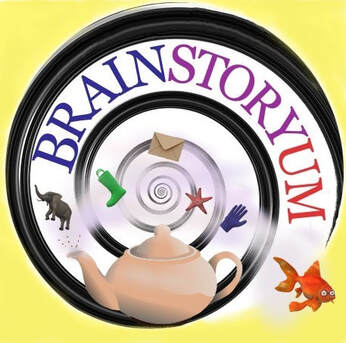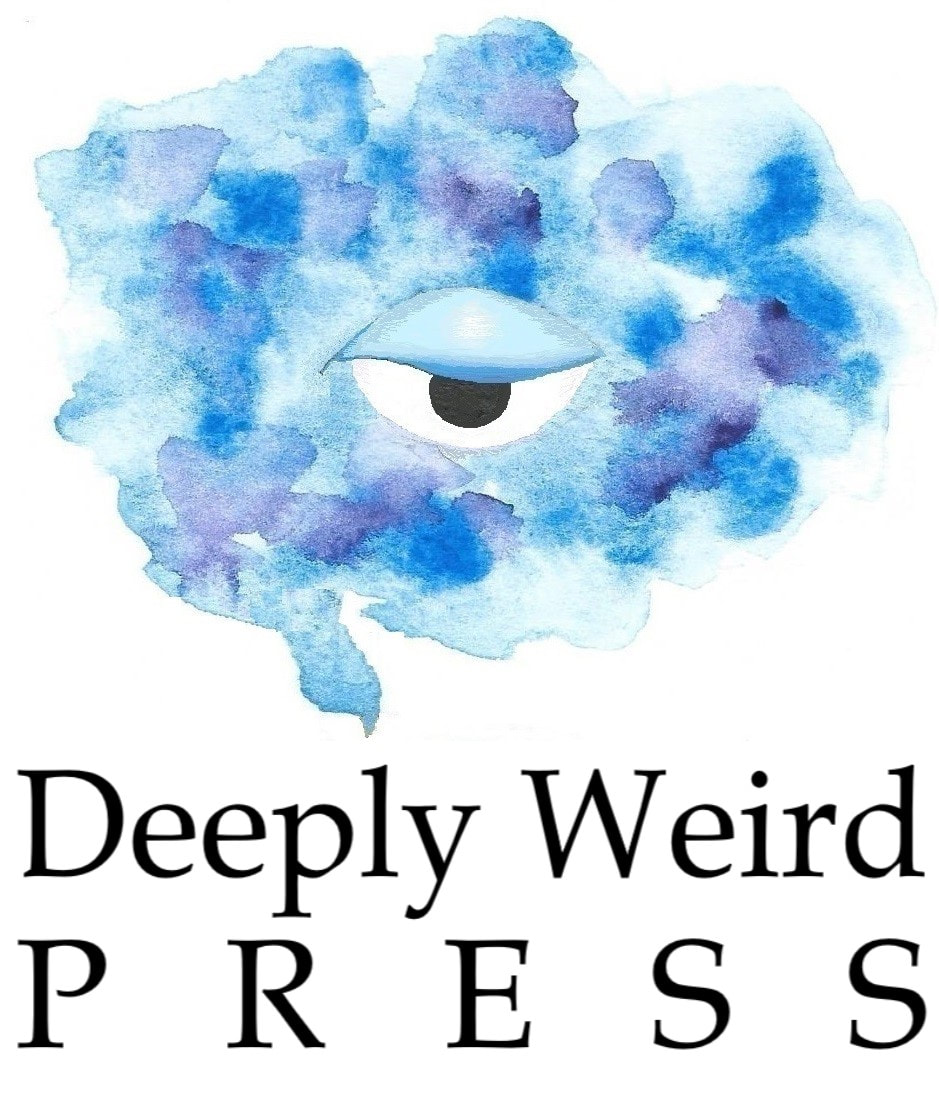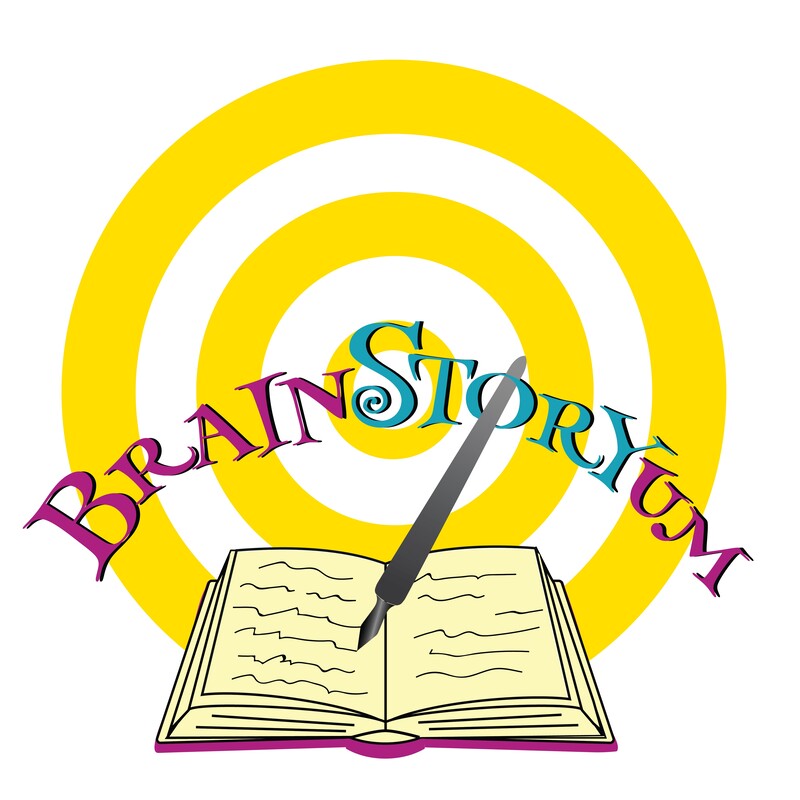Are you interested in the psychology of creative writing and the enigma of inspiration? Would you like to hear some unique writing prompts that can really enrich your storytelling? Try this week’s episode of Brainstoryum: Writing Around the Secret. Stick around for the game of Exquisite Corpse at the end – this is story brainstorming in its rawest and purest form! As ever, this is profound, deep-thinking content, with a solid helping of humour too!
SHOW TRANSCRIPTION (does not include Exquisite Corpse game play at the end): On the surface of it, you might think that mysteries are just for mystery novels, and for thrillers with plots centred around code-cracking, or an ancient alchemical secret that gives you immortality; basically, the type of story that is completely structured around an unknown thing that must be found out by the protagonist. A great tradition of storytelling, and when it’s done well, it works fantastically. But actually, I think that every story contains an element of mystery, of something unknown, just out of reach – and by focussing on this, developing this aspect of your story, even in quite subtle ways, you can really hook the reader in and grip them so they can’t put it down. If we first of all think about it from the point of view as readers: at the beginning of a book we’re given certain information about the main character and the situation they’re in – but part of what pulls us in is the promise of what we don’t yet know. Maybe it’s just that we don’t understand why they’re in the situation they’re in. Perhaps they’re being threatened, and we only get a smattering of information about why this is, the other person’s reasons for harming them, or wanting to get something from them. Whatever it is, there’ll be something we don’t yet fully understand, but there’s just enough information to make us want to stick around and find out what that is. Stories aren’t just about conflict or overcoming obstacles, although those are the perhaps the larger, broader elements, fundamental to the whole structure; part of the itch of wanting to read on is about what we don’t yet understand. But first, I want to reel back a bit and talk about the experience of writing, the psychology of writing and how the unknown seems to pose a problem – it’s great for the reader, when you’re first picking up a book and you want to know what happens, but not so great for the writer when you’re first starting out on a new draft, or so it would seem. When I’m starting a brand new idea, a first draft, I find myself in this weird psychological catch-22. I feel ready to write, but apart from a few details that I know I want to build on, I’ve got all these sort of vague textures in my mind, these patchwork impressions, half-realised images, feelings, faces, I don’t even know what, sometimes, it’s just a sort of atmosphere and an urge to write it down – so I’m trying to write something, but I don’t yet know what it is, and I also know from experience that I won’t know what it is until I get going. I’m ultimately a discovery writer, that’s just how I seem to function. My first drafts are full of these strange hesitant gaps. They can be quite frustrating. What happens next, I ask myself? I don’t know. Maybe if I stare into space for long enough, it might come to me? Sometimes, but only if I soften my gaze and whisper questions to myself (or my conference of teddy bears, who sit here very patiently, watching on). But more often, I think ideas come to me while I’m writing… but I don’t know what to write yet. Like I said, total catch-22! In those moments, it is hard to appreciate the importance, perhaps the necessity of the unknown, the unreachable something you’re trying to get at, because it seems at first that the unknown presents a block, certainly not a source of inspiration. So what I normally do to push through this is to reach for what little I do know, but try to keep an open mind at the same time. Just – write a scene. Write a scene you’ll never use. Put the protagonist in a café, a castle, a speeding car – anywhere, and just write. Whatever else you know about what’s coming in the story – whoever else you know is going to be in this story – try to bring them in somehow, even if it’s just the protagonist thinking about them at certain points. Keep writing, and accept that you’ll probably never use this scene, and that it doesn’t matter at all. Usually, if you keep going, something, some interesting detail will emerge from your scene like a little discovery about who he or she really is, what they want, something about their past, you never know will come up – and that’s good. That is the essence of discovery writing. So that’s my general bit of advice for working around these unknowns in your first draft and getting past the blocks that seem to rise up when you’re just starting out on an idea. Focus on the little details you do know, and just keep exploring a scene, any scene. But – what about using the unknown as a writing prompt? Does this even make sense? Well, you know me, I love to make sense out of the things that don’t (and that’s what Exquisite Corpse is all about). How about you try writing a character – decide a few things about their personality, location and situation, you don’t have to be too specific yet, and try writing a scene where they’re brooding on a secret. Perhaps it’s a dangerous secret, something that could get them sacked from their job, prosecuted, or even killed. Perhaps they’re wondering whether to confess it to someone, or to try and get some advice about it – from whom? A counsellor, or an expert in this type of issue, or someone much less official, a criminal or even a psychic? Maybe your character is debating whether to write it down, even in a code, just to get it off their chest? Or there might be a reason why they need to tell someone about it – perhaps they have to go on the run but need to make it clear to their loved ones that there was a really dire need for them to disappear. That might even be a good starting point, actually – to write a letter from their point of view, but only hinting at what the secret is, so they don’t endanger them. There are so many possibilities for the feeling of the threat that hovers over our protagonist right now, and so many options for who they might be trying to keep out of their situation, or bring in to their situation, to help. But just try writing the scene, exploring these ideas, without trying to work out what their secret is. Amongst all these other emerging details, you might find yourself just describing the atmosphere and how things appear to the character since they’re so nervous – how they react when other people walk by – are they coming towards me? No, it’s okay. Do I know that person? Will they think it strange that I’m here, seeming to hide? Just see what you can write – like I said in my general bit of advice about first drafts, focus on what you do know, or what comes to you in that moment of writing, and don’t concern yourself with the fact that you don’t know what their secret is. Write around the secret. Character and plot are so intimately bound in any story, that if you can explore one of these enough while keeping an eye open for the other, the other will make itself known. I really think that if you keep going, and keep gently building the situation of this scene, ask yourself questions about who this character really is, you will come up with an idea for their secret, and it will probably feel like a discovery, something you’ve stumbled upon. By stepping around the bubble of this mystery, and letting it be, and just focussing on the details around that bubble - the people nearby, or the people they love, their worst fears– and whether the secret has been thrust upon them, or if it is a lie of their making – the secret will seem to reveal itself to you, sooner or later. This feeling of mystery, of something about to be discovered is kind of how all stories begin. The exercise I’ve described is almost like dwelling in that feeling that you have as a reader, when you begin reading a story that really intrigues you. It’s like expanding that space of the unknown, stepping into, and building a story around a seemingly empty space. An empty space that’s full of potential. In story beginnings we have to hold something back from the reader to get them asking questions and wanting more – so maybe it’s time to indulge ourselves, by holding something back from ourselves as we write: by not knowing the protagonist’s secret yet, but having an inkling of it, and following the details that seem like clues as they emerge in our imagination. And now it’s time for a completely different exercise of the imagination. As we play Exquisite Corpse, the initial building blocks of our story don’t emerge from our imaginations. They must first emerge from… THE SOCKS OF DESTINY! Exquisite Corpse game play is not transposable... Please listen the last section of the show to enter a realm of deep silliness and inspiration!
0 Comments
Your comment will be posted after it is approved.
Leave a Reply. |
|
What readers are sayingReview of The Empty Danger: 5.0 out of 5 stars |
Contact |


